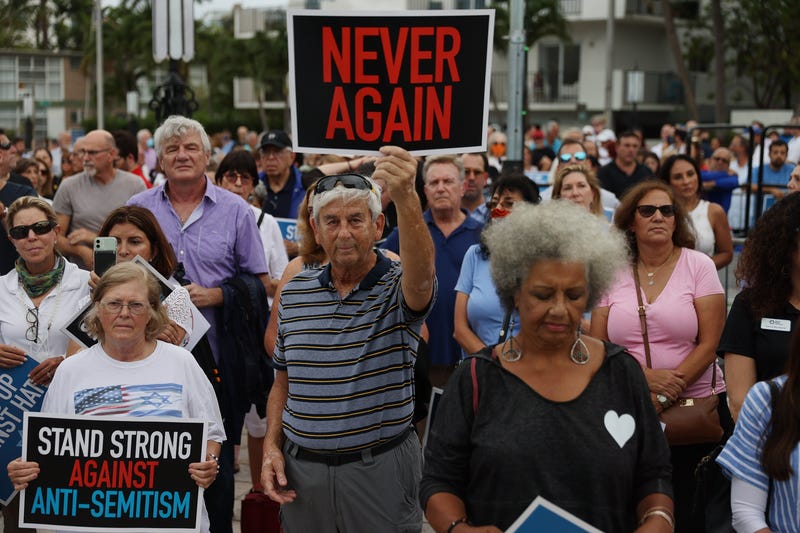
KANSAS CITY – Donald Trump is facing backlash and condemnation for recently hosting white nationalist and Holocaust-denier Nick Fuentes at his private club in Florida. Fuentes was a guest of Kanye West’s, who has also been under fire for making a slew of antisemitic comments.
West’s comments and actions have brought antisemitism to the forefront for non-Jewish people who may not have experienced it directly.
Dr. Frances Levine and Helen Turner of the Kaplan Feldman Holocaust Museum in St. Louis want to draw attention and educate visitors on how to take action against this type of prejudice and bigotry.
“I think that we have seen such a rise in the acceptance of hate speech. And I think that what we have been experiencing is such an increase in the almost anonymous face of online communications where people feel like they can be masked,” Dr. Levine said.
“But we've also seen, I think, in the last couple of years, a rise in the examination of the historical circumstances surrounding the Holocaust, surrounding hate speech and antisemitism, and so is that they've gone sort of hand in hand.”
Turner said it’s dangerous because these ideas play into very old stereotypes.
“There's a conspiracy that [Jewish people] run things, or there's an organization. I mean, this is an absolute and complete falsehood,” she said. “And it might seem light hearted on the surface, Jewish people running Hollywood. But what that actually pulls is a much older stereotype of Jewish conspiracy theories. So even what might seem simple on the surface has much deeper tendrils into the history of antisemitism, which means that we have to call those things out.”
Dr. Levine said it’s important to call out antisemitism in conversations, even if people don’t realize they’re playing into antisemitic tropes.
“In every context that we confront it, we have to be ready to greet it,” she said. “It can be very hard to do if you're in a social setting, and it doesn't have to be done with anger. It can be done with kind of a lesson.”
Dr. Levine added, “ I had that myself, when I was teaching, a student was presenting a grade dispute to me and said, ‘I'm not trying to Jew you out of this grade’” she said. “And I said, ‘Let's stop and talk about what you just said to me.’ And he was utterly unaware that using do as a verb was offensive, or was tying into a stereotype.”
